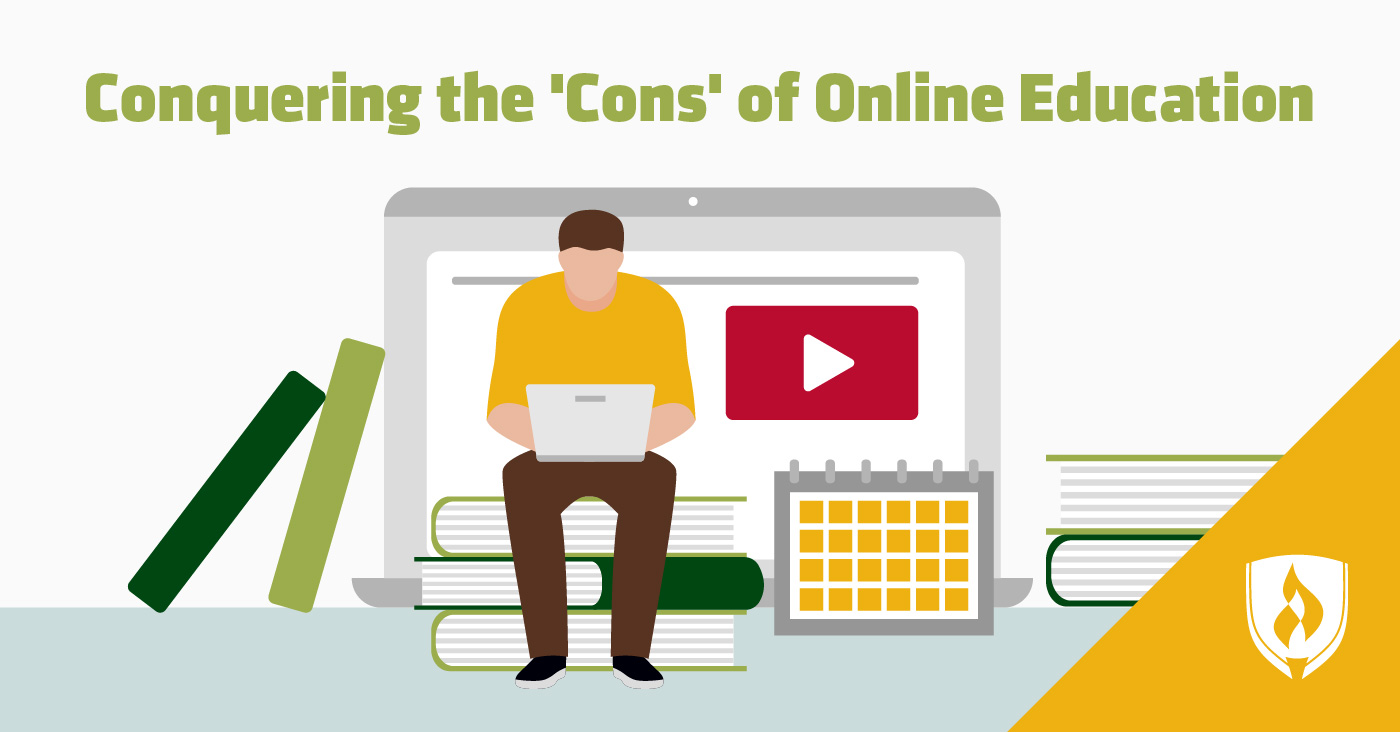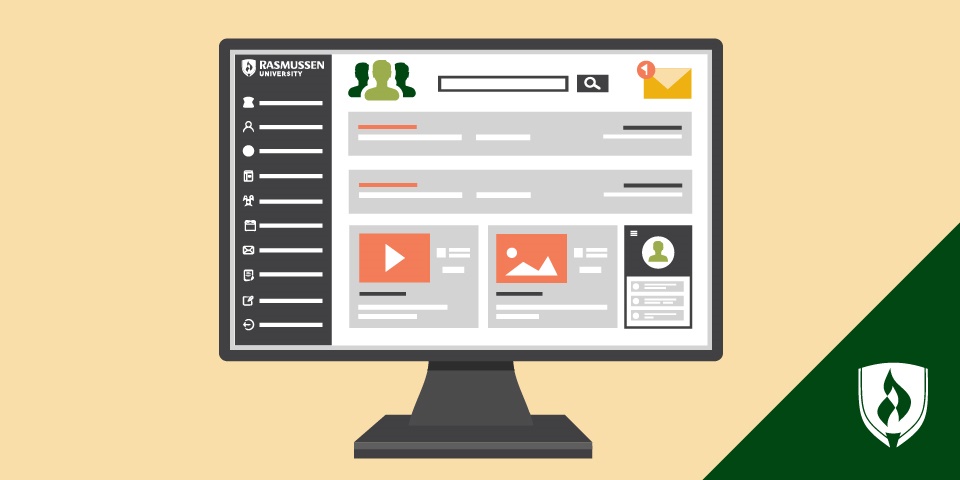
A life filled with work appointments, student-teacher conferences, family game nights and home-cooked dinners doesn’t often leave time for semi-weekly class meetings.
Nontraditional students are hard to define, although often they are adult students who are balancing families and sometimes multiple jobs. Due to demanding schedules, these students often wind up in night classes for three-hour time slots. And although that works for some people, it doesn’t always leave time for the family routine and full-time job you need to balance week after week.
Online education could be the perfect solution to solidify your career in the midst of your busy schedule. It takes ambitious people—trailblazers like you—to pave the way for future students to reach their personal goals. But don’t feel like you’re alone in the fight.
More than 6.7 million students took at least one class online in 2012, according to a study from the Babson Survey Research Group. Education experts also say the rate of growth for online enrollment will continue to be “extremely robust” in the years to come.
And although statistics and articles can serve as inspiration on their own, true-to-life success stories of people conquering their busy lives and turning the ‘cons’ of online education into ‘pros’ can inspire even further.
Let’s take a look at the most common concerns associated with online education.
The 'Cons' of Online Education
Con #1: “It can actually be more expensive than traditional learning”
Cost is an obvious factor in a person going back to school—this is especially true when that person has a family to support not only emotionally, but financially. Although some believe that one of the cons of online education is that it actually pans out to cost more than traditional education, that might not actually be true.
Every online college varies in its cost per credit or per degree, but online degree programs typically offer courses that are similarly priced to those included in the curriculum for traditional educational settings. If you choose a school that is committed to providing you with a superior education, online classes won’t necessarily be cheaper, but you can expect a level of quality equivalent to that of traditional classes—all from the comfort of your own home.
Con #2: “Internet access is hard to come by (and you need to be tech-savvy to navigate it)”
Internet accessibility is a must with online learning. Many view this as a disadvantage, acknowledging that not everyone has readily available internet access. But the good news is that whether you need Wi-Fi or the satellite data feed from your mobile device, the virtual world is virtually everywhere.
Either tap into the modem that supports your kids’ social media habits, the datafeed signaled in the top margin of your tablet or the high-speed Internet bundled in with your digital cable. Don’t have any of those? Just head to your local coffee shop. They ask, at minimum, that you shell out a buck fifty for a cup of dark roast or an earl grey with milk, and the World Wide Web is at your fingertips.
Another misconception about online education is that you have to be ultra tech savvy to navigate it properly. Well, the very fact that you’re reading this post on the online learning blog at Rasmussen College proves that you know a thing or two about navigating the Web—at least to the extent needed for an online education.
Still feeling insecure? Enlist one of your high-school-aged children or neighbors. The Twitter users of today are the LinkedIn professionals of tomorrow.
Con #3: “Online learning requires more time than traditional education”
There’s no disputing that students who pursue online education require solid time management skills—those lectures won’t listen to themselves! But the thing is, we know you’re taking this seriously, otherwise you wouldn’t be here. Online programs are convenient for nontraditional students who are juggling school, work and family.
Although this flexibility is an obvious perk for busy students, many believe that because students are lacking the face-to-face interaction intrinsic in traditional education, their degrees will consequently take longer to complete or not be as effective.
An average student, however—whether in online learning or a traditional classroom environment—should set aside at least five hours of study time for a typical college-level course. It is common for students to budget less time, but the expected amount of work remains constant.
Con #4: “The experience is not the same”
Often, when one pictures an online learning experience, that landscape includes an air of isolation—an apparent disconnect between one student and the rest; between students and the instructor. It is true that to succeed in online education, students need to be self-disciplined and self-reliant.
The misconception here, however, lies in the general view that self-discipline and self-reliance are somehow negative characteristics. Online forums and discussion groups coupled with the ever-growing presence of smart phones and tablets create a near constant presence of an online community of learners.
Not only can you keep in contact with cohorts, but instructors are prepared to answer questions via email, often times more promptly than in traditional classrooms, because being available online is written into their job descriptions.
Learning to be proactive in one’s personal learning experience is a quality that companies often seek when interviewing potential job candidates. And if you’re worried about possible employers looking down on your online education, rest assured. The U.S. Department of Education conducted a study in 2009 concerning the result of students learning in online education formats. It concluded that students who took courses online performed better in overall class scores than those who studied the same course material in traditional classroom environments.
Now what?
‘Learning styles’ is a hot-ticket issue in the conversation about online education. In a conversation like this one, think of this challenge as a strength-builder. Finding success in a career first begins with discovering your vast abilities as a student. Any ‘con’ can be conquered. Be a trailblazer.
Education is all about give and take—but don’t worry, online education is designed to make your life easier. And it’s set up with a team of people ready to help you if any glitches occur. Start your own education success story by first building a schedule that works for you.
Check out Rasmussen’s Online Learning blog where you can read about the skills you’ll learn through online education.




